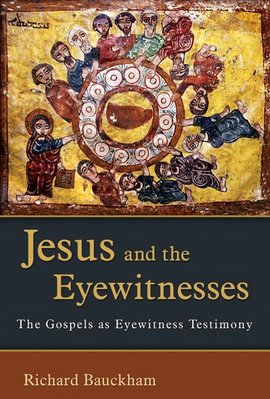
OK, here are my answers to the
Good Books Meme. In case you've forgotten, here are the rules:
i. List a helpful book you've read in this category;
ii. Describe why you found it helpful; and
iii. Tag five more friends and spread the meme love.
Here goes:
1. TheologyI was introduced to theology when I was 15 years old by reading a compendium by Alistar McGrath. And I've loved theology ever since. The book I'm placing here is Karl Barth's
Dogmatics in Outline. These were the first theological lectures given in Germany after WWII, with the text based off notes a student took as Barth was pretty much speaking off the top of his head. Despite the brevity of DIO, it has an urgency and compassion that has a powerful impact. It also taught me the phrase
toho mobohu.
2. Biblical TheologyI won't hold back here -
Climax of the Covenant by N.T. Wright is awesome. Focused on some key Pauline passages, Wright really bring to life God's plan to redeem his creation from evil through Israel and Jesus. I already had a framework for this through Goldsworthy and Dumbrell, but Wright's explanation of the narrative of scripture is
par excellence.
3. GodMany Christians have profited over the past 50+ years from reading T.C. Hammond's In Understanding Be Men. But I found Colin Gunton's
Act and Being to be really helpful in thinking through who God is and what language we should use to describe him. It particularly awoke me to all the Greek philosophical ideas that had creeped into Christianity.
4. JesusI loved Bauckham's God Crucified, and I'm tremendously excited about reading Jesus and the God of Israel. But, I'll have to go with N.T. Wright's
Jesus and the Victory of God. This is a book that every evangelical Christian should read. This book fits together the picture the gospels present of Jesus and help us understand him and what he was all about. I'm not sure that any other book besides holy scripture has so thoroughly changed me and shaped me. If you haven't read it already,
read this book.
5. Old TestamentBesides a whole heap of commentaries, I found Dumbrell's
Faith of Israel helpful reading in understanding the whole Old Testament. Like
Chris, Barry Webb's Five Festal Garments was another handy little book for me. As was David Peterson's
Christ and his people in the book of Isaiah.
6. New TestamentI guess I can't use N.T. Wright again, so I'll go with Richard Bauckham's
Jesus and the Eyewitnesses. I haven't finished it yet, but Bauckham has a depth of of knowledge and wisdom, and this comes to the fore in this wonderful book. And guess what - the gospels are actually based of eyewitness accounts, not just the ramblings from this different apostolic communities.
7. Ethics
Surprise, surprise...I'm going with Oliver O'Donovan's
Resurrection and Moral Order. Tremendously helpful book in understanding that the starting point for evangelical ethics is the Lordship of Jesus Christ. But I'm going with this book because I found it incredibly hard. OOD is dense, and especially in Resurrection and Moral Order. But this book is filled with treasurer for those who have the patience to sift through and find it. The moral of this story is, keep reading hard books, even if you only take in half of it (or less).
8. (Church) History
I've read a bit of church history, and really appreciate the writing from people like MacCulloch, Noll, Bebbington, Norris, but I'm going to pick Rowan Williams short book
Why Study the Past. Williams argument is that Christians have more reason than anyone else to do history well, because often it's a. our own history we are dealing with, and b. we're often engaging with our brothers and sisters in Christ down through the centuries. He also offers some helpful analysis of key historical moments, like the the reformation and the early church. An honourable mention goes to Philip Jenkins '
The Lost History of Christianity'.
9. BiographyI wish I read more biographies than I do. J.C. Ryle has some great little biographies on the leaders in the great awakening in England. But a biography I love and cherish is Diarmaid MacCulloch's
Thomas Cranmer: A Life. This is probably the definitive history on England's reformer, and offers great insight not just into this tumultuous period of history, but also into this great man of faith.
10. EvangelismOne of the best books going here is John Dickson's Promoting the Gospel. But I'm going to pick John Chapman's
Know and Tell the Gospel because it really is a quite simple book to read, and for the sake of sentimentality (this was the first Christian book I owned). Chapman has been greatly gifted as an evangelist, and has some wonderful insights. The only thing is that it might be quite dated now (the book is over 20 years old and Chapman himself was born in 1930) so for something more relevant to today read Dickson's book.
11. PrayerThis might sound weird, but as a kid in church, I found
An Australian Prayer Book and the whole tradition behind (i.e. the BCP) really helpful for my prayers. (Reading the preface to both of these books helped too). It's Trinitarian and Chistological depth shouldn't be underestimated. Although being full of set, formal, liturgical prayers, I know how to pray to the Father, through the Son and in the Spirit because of it. It modeled prayer for me, and gave me a vocabulary to use in prayer.
Whoa, what an exercise. That took longer than I expected. I've already tagged my five, and well done to
Byron,
Chris,
Steve,
Duncan and
Michael who've completed the meme (also
Sam,
Joe and
Paul). Looking at this list makes we want to read more books by dead people. I might go do that.








